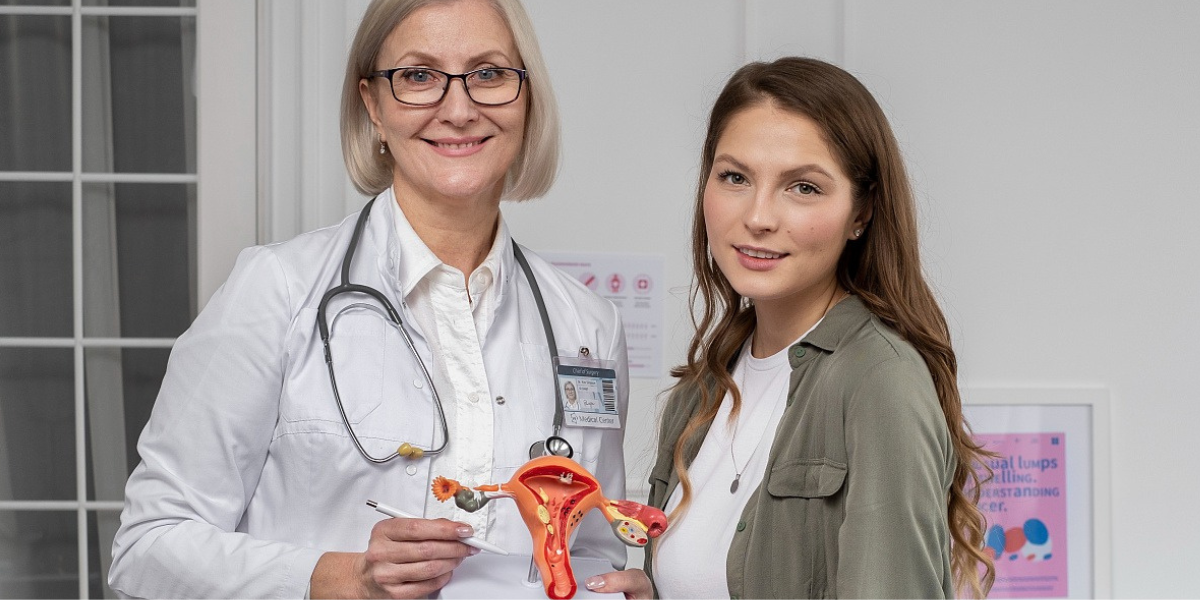Ovarian cancer can feel like a silent storm – calm on the outside but chaotic within. It’s often called a “silent killer” because it sneaks in with vague symptoms, only to be discovered in advanced stages. But here’s the good news – effective treatments do exist. And with early diagnosis and guidance from the best doctors for ovarian cancer treatment, outcomes can be drastically improved. So, what really works? Let’s break it all down, step by step.
What is Ovarian Cancer?
Ovarian cancer begins in the ovaries – the almond – sized organs responsible for producing eggs and hormones. There are different types, but the most common is epithelial ovarian cancer, which starts on the outer surface.
Why Early Detection is Tough
Unlike breast or cervical cancer, ovarian cancer doesn’t have a routine screening test. Plus, its symptoms – bloating, pelvic pain, frequent urination etc are easy to brush off as “normal.” That’s why it’s usually diagnosed at a later stage.
So, What’s the Most Effective Treatment?
There’s no one – size – fits – all answer. The most effective treatment often depends on the cancer’s type, stage, your age, health, and whether you still want to have children. But generally, the following form the treatment backbone.
1. Surgery: The First Major Step
Debulking Surgery – Think of surgery as clearing the battlefield. Doctors aim to remove as much of the tumor as possible – sometimes the ovaries, uterus, fallopian tubes, and even lymph nodes. This is called cytoreductive or debulking surgery.
Why It’s Crucial – The more cancer that’s removed, the better the results with follow – up treatments. That’s why you need the best doctors for ovarian cancer treatment – experience really matters here.
2. Chemotherapy: Fighting What’s Left
How It Works – Chemotherapy is like a sweep – through, hunting down cancer cells that surgery might miss. It’s usually given after surgery (adjuvant chemo) but sometimes before (neoadjuvant chemo) to shrink the tumor first.
Common Chemo Drugs – The power duo here is Carboplatin and Paclitaxel – these meds work together to kill fast – dividing cancer cells. Treatment is often given in cycles over several months.
3. Targeted Therapy: Precision Power
Smarter Drugs, Sharper Impact – Instead of blasting all cells like chemo, targeted therapy zeroes in on specific changes in cancer cells. Think of it like a sniper instead of a shotgun.
PARP Inhibitors – For women with BRCA mutations, PARP inhibitors like Olaparib, Niraparib, and Rucaparib have changed the game – slowing cancer growth and improving survival.
4. Hormone Therapy: Cutting Off the Fuel
Some ovarian cancers are hormone – sensitive. In those cases, hormone – blocking drugs help by cutting off the estrogen supply that fuels the cancer.
5. Immunotherapy
This is a rising star. Immunotherapy trains your immune system to fight cancer. It’s not standard yet for ovarian cancer but is showing promise in clinical trials.
6. Radiation: Not Common, But Useful
Radiation isn’t typically a go – to for ovarian cancer, but in specific cases – like treating localized recurrences – it’s helpful for symptom control.
The Role of Clinical Trials
Innovation Starts Here – Many cutting – edge treatments begin in clinical trials. If standard treatments aren’t working or you want access to new therapies, talk to the best doctors for ovarian cancer treatment about joining a trial.
Choosing the Right Treatment Path
Individualized Plans Matter – There’s no cookie – cutter here. Treatment plans are personalized. Age, fertility plans, genetics, health history – all factor in. That’s why you need a medical team that listens, thinks long – term, and tailors every step.
Support Beyond Medicine
Healing Is More Than Physical – The road to recovery also needs emotional support, lifestyle changes, and sometimes even financial help. Many cancer centers offer nutrition counseling, therapy, support groups, and survivorship programs.
Why the Right Doctor Makes All the Difference
You wouldn’t let a rookie pilot fly your plane in a storm. Similarly, you want only the best doctors for ovarian cancer treatment guiding your care. They don’t just treat the disease – they know the latest science, understand the emotional weight, and create plans with precision.
Staying Hopeful: Real Stories, Real Recovery
Plenty of women diagnosed with ovarian cancer go on to live full, vibrant lives. The key? Early intervention, the right treatment mix, and a solid medical team.
So, what’s the most effective treatment for ovarian cancer? It’s not one magic bullet – it’s a thoughtful blend of surgery, chemotherapy, targeted therapies, and personalized care delivered by the best doctors for ovarian cancer treatment. The sooner you act, the better the outcomes. Trust your gut, ask questions, and never settle for less than expert care.
FAQs
1. Can ovarian cancer be cured completely?
Yes, especially when caught early. Many women with early – stage ovarian cancer are cured after surgery and chemo.
2. What’s the survival rate for ovarian cancer?
It varies by stage. For localized cancer, the 5 – year survival rate is over 90%. For later stages, it’s lower – but treatment advancements are improving outcomes.
3. Is targeted therapy better than chemotherapy?
Not better, but different. It’s often used alongside or after chemo, especially in BRCA mutation cases.
4. How do I find the best doctors for ovarian cancer treatment?
Look for specialists in gynecologic oncology, ideally affiliated with top cancer centers. Referrals, reviews, and hospital affiliations matter.
5. Can I still have children after ovarian cancer treatment?
Depending on the treatment and stage, fertility – sparing options may be available. Always discuss this with your doctor before surgery or chemo.

